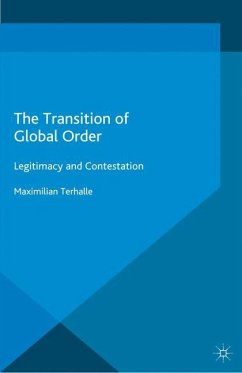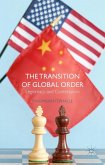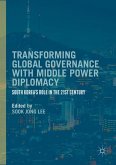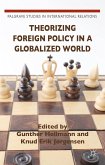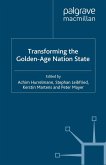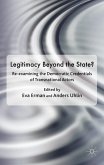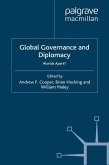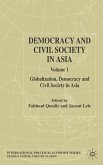This study looks at the underlying foundations of global order, putting aside mainstream institutionalist approaches in showing how China and the US are engaged in an intense process of contestation and renegotiation of an institutionalized order that has long been taken for granted.
''In this book Maximilian Terhalle lays out a powerful argument that recent academic and policy concerns with global governance need to give way to a renewed focus on the power-political order amongst the major powers, above all the United States and China. The book draws on both English School scholarship and on classical realism. Its picture of the current order transition is stark and strident: the revisionist ambitions of both the US and China underpin the multiple deadlocks that plague contemporary global governance. Any restored order will have to depend on the possibilities of a new political bargain based both on changes in the distribution of material power and on the normative beliefs and self-conceptions of the major players. This is an important and timely contribution with which those interested in global order and global governance and the relationship between them will want to engage.'' Professor Andrew Hurrell, Oxford University
''Want to understand why a US-China 'G-2' will not materialize and serve as the basis of a reconstructed global order? In this theoretically and conceptually sophisticated study, Maximilian Terhalle deconstructs the philosophical, structural, and social bases that comprise Sino-American differences over global preferences and governance. Both nations' exceptionalist identities and emerging great power rivalry make it difficult for them to cooperate, which helps to explain why the future world order will become ever more disorganized and dangerous. A provocative book that should be read by scholars of international relations.'' Professor David Shambaugh, George Washington University and The Brookings Institution
'''Cosmopolitans beware' is the central message of this admirable book. Theoretical ambition and empirical illustrations are tightly linked in an analysis that tracks the overlays of existing regimes and great power politics pitting the US and China against each other. This book charts, once again, the twilight flight of Minerva's owl through a world guided neither by Liberalism's reassuring radiance nor Realism's despairing darkness.'' - Professor Peter J. Katzenstein, Cornell University
'This is one of those rare books that may become an instant classic. Terhalle convincingly offers a framework that helps us understand the ongoing transition of global order by looking closely at the re-negotiations of the rules of the game underlying 21st Century world politics. He presents a middle-model that captures the pluralist dynamics of today's global politics, successfully navigating between the Scylla of US-centric and the Charybdis of Euro-centric tunnel visions of global order. In that the book displays a thorough understanding of the reciprocal nature of the US-China relationship in shaping order transition.' - Dr Jochen Prantl, Australian National University
"This ambitious book makes an important contribution to our understanding of how international orderis legitimated, contested, and transformed. Dr Terhalle's analysis, grounded in extensive empirical research, of how the United States and China are engaged in a process he calls reciprocal socialization should be of deep interest to scholars and policy-makers alike. This book productively integrates the insights of both material power-based and ideas-based theories of power politics and global governance to develop a comprehensive account of how the relationship between China and the United States is in the process of reshaping multiple dimensions of our international order." - Dr Mlada Bukovansky, Smith College
"Maximilian Terhalle painstakingly examines how world politics has begun to change in the last few years in ways we all still struggle to understand fully. He arrives at conclusions which challenge many conventional wisdoms and preconceived notions about international order and global governance. Broadly based, thoroughly researched and tightly argued, his study is essential reading for anyone interested in the future of international relations, both as an academic field of inquiry and the reality with which decision-makers have to deal." Professor Hanns W. Maull, Trier University
'The Transition of Global Order asks what may be the single most important question in international relations today: how the rise of China and other non-western powers will affect the character of the liberal international order. Professor Terhalle examines the interplay of common culture (or its lack), rules, coercion, and governance effectiveness in shaping the outcome.'' Professor Jack Snyder, Columbia University
''Want to understand why a US-China 'G-2' will not materialize and serve as the basis of a reconstructed global order? In this theoretically and conceptually sophisticated study, Maximilian Terhalle deconstructs the philosophical, structural, and social bases that comprise Sino-American differences over global preferences and governance. Both nations' exceptionalist identities and emerging great power rivalry make it difficult for them to cooperate, which helps to explain why the future world order will become ever more disorganized and dangerous. A provocative book that should be read by scholars of international relations.'' Professor David Shambaugh, George Washington University and The Brookings Institution
'''Cosmopolitans beware' is the central message of this admirable book. Theoretical ambition and empirical illustrations are tightly linked in an analysis that tracks the overlays of existing regimes and great power politics pitting the US and China against each other. This book charts, once again, the twilight flight of Minerva's owl through a world guided neither by Liberalism's reassuring radiance nor Realism's despairing darkness.'' - Professor Peter J. Katzenstein, Cornell University
'This is one of those rare books that may become an instant classic. Terhalle convincingly offers a framework that helps us understand the ongoing transition of global order by looking closely at the re-negotiations of the rules of the game underlying 21st Century world politics. He presents a middle-model that captures the pluralist dynamics of today's global politics, successfully navigating between the Scylla of US-centric and the Charybdis of Euro-centric tunnel visions of global order. In that the book displays a thorough understanding of the reciprocal nature of the US-China relationship in shaping order transition.' - Dr Jochen Prantl, Australian National University
"This ambitious book makes an important contribution to our understanding of how international orderis legitimated, contested, and transformed. Dr Terhalle's analysis, grounded in extensive empirical research, of how the United States and China are engaged in a process he calls reciprocal socialization should be of deep interest to scholars and policy-makers alike. This book productively integrates the insights of both material power-based and ideas-based theories of power politics and global governance to develop a comprehensive account of how the relationship between China and the United States is in the process of reshaping multiple dimensions of our international order." - Dr Mlada Bukovansky, Smith College
"Maximilian Terhalle painstakingly examines how world politics has begun to change in the last few years in ways we all still struggle to understand fully. He arrives at conclusions which challenge many conventional wisdoms and preconceived notions about international order and global governance. Broadly based, thoroughly researched and tightly argued, his study is essential reading for anyone interested in the future of international relations, both as an academic field of inquiry and the reality with which decision-makers have to deal." Professor Hanns W. Maull, Trier University
'The Transition of Global Order asks what may be the single most important question in international relations today: how the rise of China and other non-western powers will affect the character of the liberal international order. Professor Terhalle examines the interplay of common culture (or its lack), rules, coercion, and governance effectiveness in shaping the outcome.'' Professor Jack Snyder, Columbia University

Maximilian Terhalle analysiert Washingtons Beziehungen zu Peking und lässt sich dafür von sieben Kollegen feiern.
Von Rolf Steininger
Maximilian Terhalle, Jahrgang 1974, war Gastwissenschaftler und "Fellow" an den Universitäten Columbia, Oxford, Yale und Cornell sowie von 2012 bis 2014 Stipendiat der Thyssen-Stiftung an der Universität Potsdam, wo er das vorliegende Buch zu Ende brachte. Gleich sieben (ehemalige ) Kollegen loben sein Buch in den höchsten Tönen - was man auf der Rückseite und im Innenteil lesen kann. Nun ist diese Art Werbung bei angloamerikanischen Verlagen durchaus üblich. Allerdings sind das in der Regel sachkundige Rezensionen aus (Fach-) Zeitschriften - was hier aber nicht der Fall ist. Wie dem auch sei: Wenn der Kollege aus Australien schreibt, dies sei eines der "seltenen Bücher, die sofort zum Klassiker werden können", ist man schon neugierig, was einen da wohl erwartet. Um es kurz zu machen: keine Sensation.
Terhalle untersucht, welche Auswirkungen der Aufstieg Chinas in erster Linie in Bezug auf die Position der Vereinigten Staaten in der Welt und auf die internationale Weltordnung insgesamt hat. Grundlage für diese Untersuchung ist zum einen die einschlägige Literatur, zum anderen sind es zahlreiche Interviews mit amerikanischen und chinesischen "top officials". Dabei "überrascht nicht", so Terhalle, "dass die meisten anonym bleiben wollten", was wiederum den Rezensenten überrascht, denn so voller Geheimnisse ist das Thema nun wirklich nicht. Als dritte Quelle hat der Autor Zeitungen benutzt und das, was China online (auf Englisch) anzubieten hat. Ergänzend noch - "ganz wichtig" - "Reden und Bemerkungen" der jeweiligen Präsidenten (Vereinigte Staaten und China) und führender Offizieller - ebenfalls online.
Terhalle nimmt die Finanzkrise 2008/9 als eine Art turning point in den internationalen Beziehungen zum Ausgangspunkt seiner Untersuchung. China pumpte damals 600 Milliarden US-Dollar in die heimische Wirtschaft und verhinderte damit den Zusammenbruch der Weltwirtschaft. Das bedeutete gleichzeitig die stillschweigende Anerkennung Chinas als einer Art Großmacht, die in mehreren Bereichen erkennbar zum Gegner oder zumindest Konkurrenten der Vereinigten Staaten wurde. China war an den von den Vereinigten Staaten bestimmten Weichenstellungen der vierziger Jahre - unter anderem Internationaler Währungsfonds, Weltbank - nicht beteiligt. Der Aufstieg Chinas veränderte die Kräfteverhältnisse an den internationalen Finanzmärkten. Kann der chinesische Yuan nach der Finanzkrise zu einer Weltwährung aufsteigen und die Vorherrschaft des Dollars brechen? Terhalle zitiert einen chinesischen Botschafter mit folgenden Worten: "Wir wissen, dass wir uns heute noch nach euren Spielregeln richten müssen, aber in zehn Jahren bestimmen wir die Regeln." Mit der von Peking ins Leben gerufenen neuen Entwicklungsbank (der AIIB: Asiatischen Infrastrukturbank), an der sich die Vereinigten Staaten trotz Aufforderung nicht beteiligen, mischt China jetzt schon die Weltordnung auf, auch wenn Präsident Xi Jinping sogleich abwiegelte: "Wir müssen gemeinsam eine regionale Ordnung schaffen, die besser zu Asien und zum Rest der Welt passt."
Zu dieser von China vorgegebenen "regionalen Ordnung" gehört sicher nicht der chinesische Anspruch auf das rohstoffreiche Südchinesische Meer, was Chinas Nachbarn seither beunruhigt. Unterstützung erwarten diese Länder von den Vereinigten Staaten, die im Sommer 2014 China denn auch mit scharfen Worten warnten, man werde nicht wegsehen, "wenn die fundamentalen Prinzipien der internationalen Ordnung herausgefordert werden". China betreibt Realpolitik, wenn es zum Beispiel im UN-Sicherheitsrat einmal so und einmal so agiert. Im Übrigen genauso wie die übrigen Veto Mächte dort. Das ist grundsätzlich nichts Neues. Weltmacht ist China - noch - nicht.
Hohe Wachstumsraten, ein globales Navigationssatellitensystem und Weltraumaktivitäten reichen allein nicht aus, um Weltmacht zu sein; man muss, so Terhalle an anderer Stelle, "Gefolgschaft und damit Legitimität in der Welt gewinnen, sonst wird es einsam und auf Dauer politisch teuer". Dabei hat China geographische Nachteile im Vergleich zu den Vereinigten Staaten mit deren nach wie vor grundsätzlich guten Beziehungen zu Europa, Japan, Indien und anderen Staaten. "Ersatz" sucht China erfolgreich in Afrika. Ob China jemals Weltmacht wird, bleibt abzuwarten.
Terhalle legt eine interessante Arbeit vor, doch das Thema birgt nicht so wahnsinnig viel Neues. Ob das Buch denn gleich ein "Klassiker" werden wird, darf füglich bezweifelt werden. Das liegt auch an dem eher zähen Englisch des Autors, das nicht unbedingt zum Lesevergnügen beiträgt. Vom Preis ganz zu schweigen.
Maximilian Terhalle: "The Transition of Global Order". Legitimacy and Contestation.
Palgrave Macmillan, Basingstoke/New York 2015. 267 S., geb., 99,84 [Euro].
Alle Rechte vorbehalten. © F.A.Z. GmbH, Frankfurt am Main

